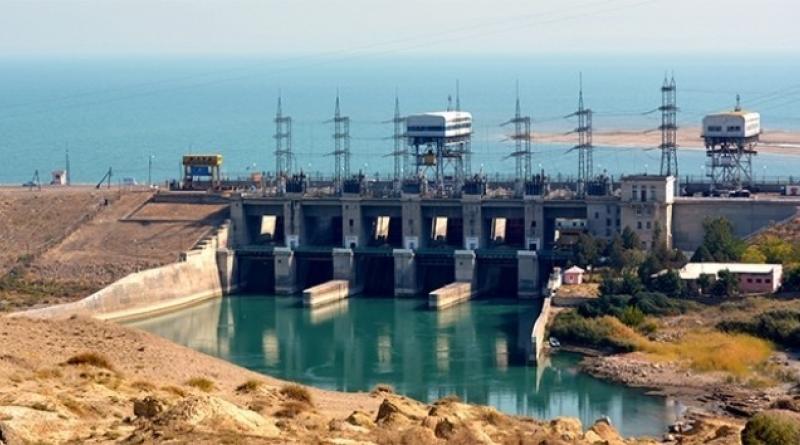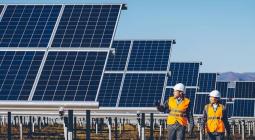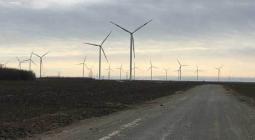Going green in the EBRD regions.

Helping countries and cities move to the green economy
Finance for the biggest solar park on the African continent, at Benban in Egypt; the first wind farm ever in Mongolia, and the 32 cities that have signed up to the EBRD’s pioneering urban sustainability programme,EBRD Green Cities, with more to come. These are just three examples of the EBRD’s successful work helping the countries where we work transition to the green economy.
The Green Economy Transition (GET) approach is the Bank’s strategy for helping countries where the EBRD works build low carbon and resilient economies. The GET approach builds on more than two decades of EBRD experience in financing green investments, with an initial focus on energy efficiency and renewable energy. Through the GET approach, the EBRD is on track to meet its ambitious target of increasing green financing to 40 per cent of its annual business volume by 2020. In 2018, 36 per cent of ABI was committed to the green economy through €3.3 billion of investment, which in turn triggered more than double that amount of co-finance.
To date, the EBRD has signed €30 billion in green investments, financed over 1,600 green projects and reduced over 100 million tonnes of carbon emissions. The initial focus on energy efficiency, built on two decades of experience in financing green investments in countries whose carbon intensity is almost five times higher than the EU average, has been broadened into ever more ambitious renewables projects and the Bank is now expanding into cities.
Cities are the source of most emissions and so represent one of the greatest opportunities to address climate change, air pollution and environmental degradation. Clean urban infrastructure projects will deliver emissions reductions and clean air for years to come. The €1 billion EBRD Green Cities framework offers cities investment and know-how to help them grow in a sustainable way. The goal is to support 100 EBRD Green Cities; 32 are already signed up.
Other success stories include:
Our innovative Green Economy Financing Facility (GEFF) programmes have delivered €4 billion worth of climate finance for investment in more than 165,000 green technology upgrades, avoiding a total of more than 8 million tonnes of CO2 emissions a year. We have teamed up with over 140 local financial institutions across 26 countries who have passed on financing to individuals or businesses for sustainable energy projects. These projects are crucial to our efforts to bend downwards the carbon emissions curve, since this is the area in which the biggest shift can be achieved in the shortest amount of time.
In Armenia, a GEFF programme supported by the Green Climate Fund provided investments in green technologies, from building insulation to solar power. We provided a PLN 300 million (€71 million equivalent) loan to Poland’s Millennium Leasing for energy efficiency and renewable projects.
Another growing area of focus is climate adaptation and resilience. As the impacts of climate change become more apparent, climate change adaptation to challenges such as temperature shifts, extreme weather events and rising sea levels is emerging as an important part of the international climate change agenda. So as to increase climate resilience in the EBRD’s countries of operations, where many countries are particularly vulnerable to climate change, we are systematically integrating climate risk assessments and adaptation measures in our investment operations.
In Tajikistan, one flagship project is the rehabilitation and modernisation of the 60-year-old Qairokkum hydropower plant, which provides electricity to half a million people. One element of the upgrades funded by a US$ 196 million finance package from the EBRD, EIB, Green Climate Fund and Climate Investment Funds will introduce innovative climate resilience measures, enabling the plant to cope with the expected impact of climate change on the country’s hydrological systems.
The EBRD’s Green Economy Transition Approach is aligned with the Sustainable Development Goals and the Paris Agreement, and is delivered through the EBRD’s unique business model, and its sector and country strategies.
18 September 2019




